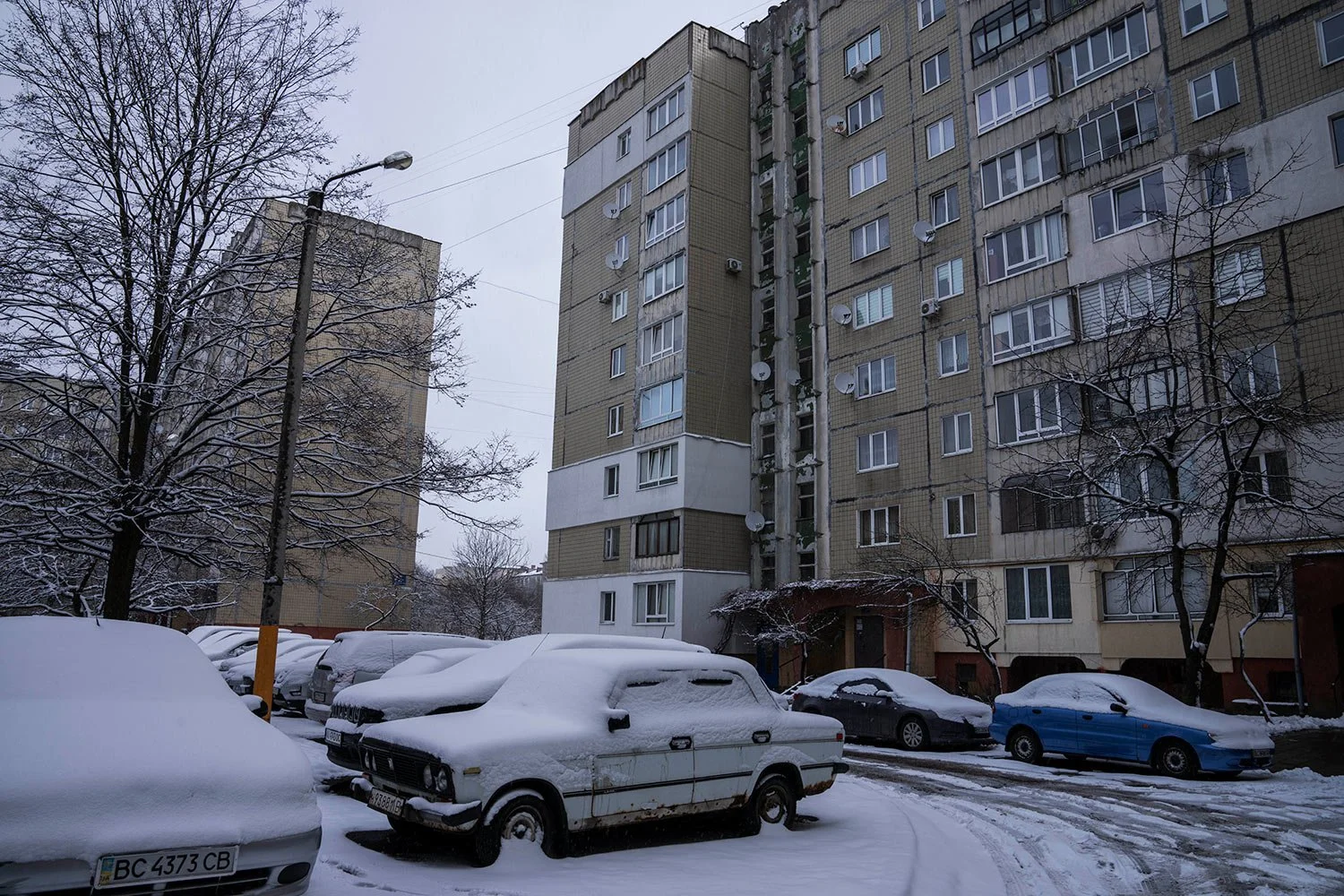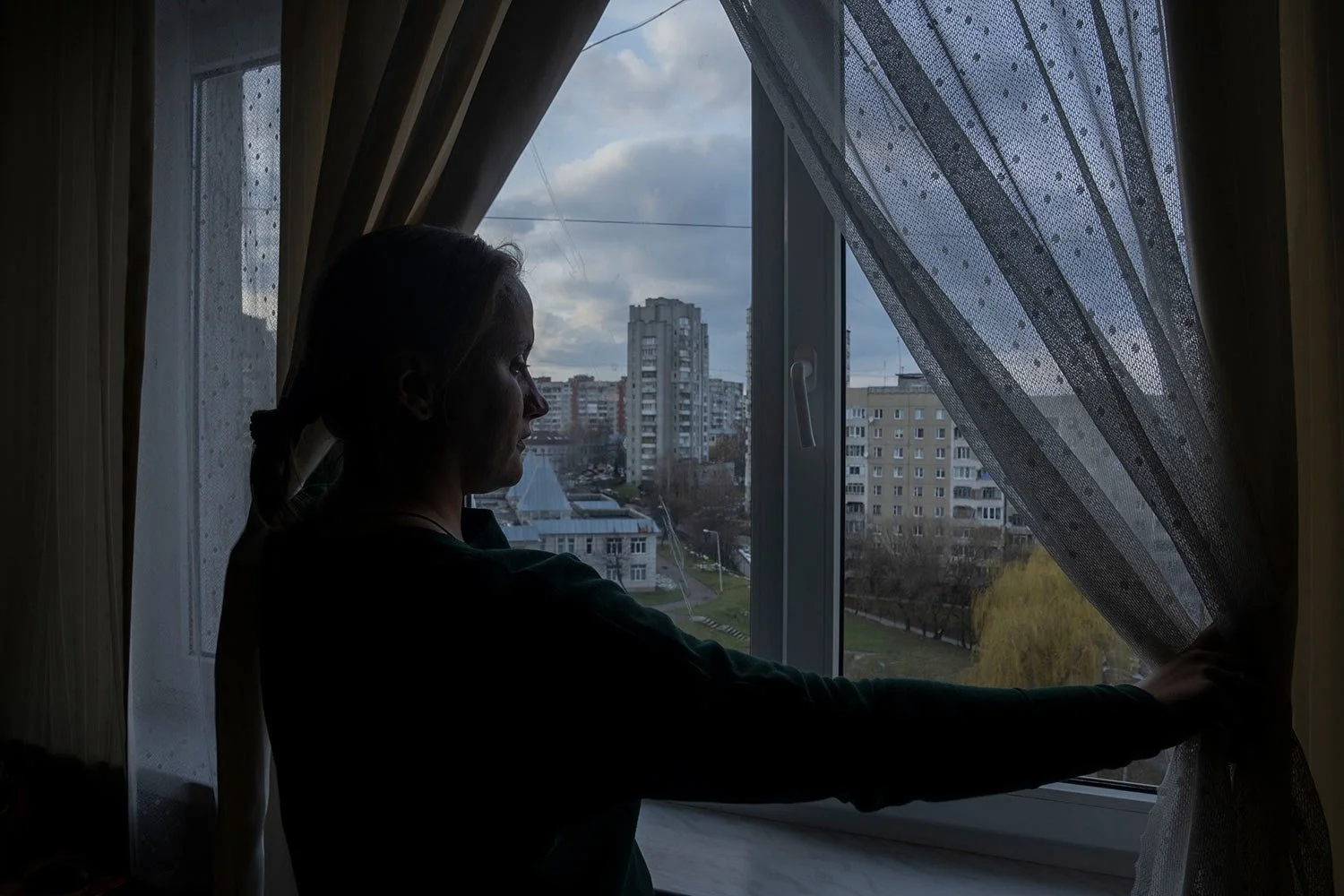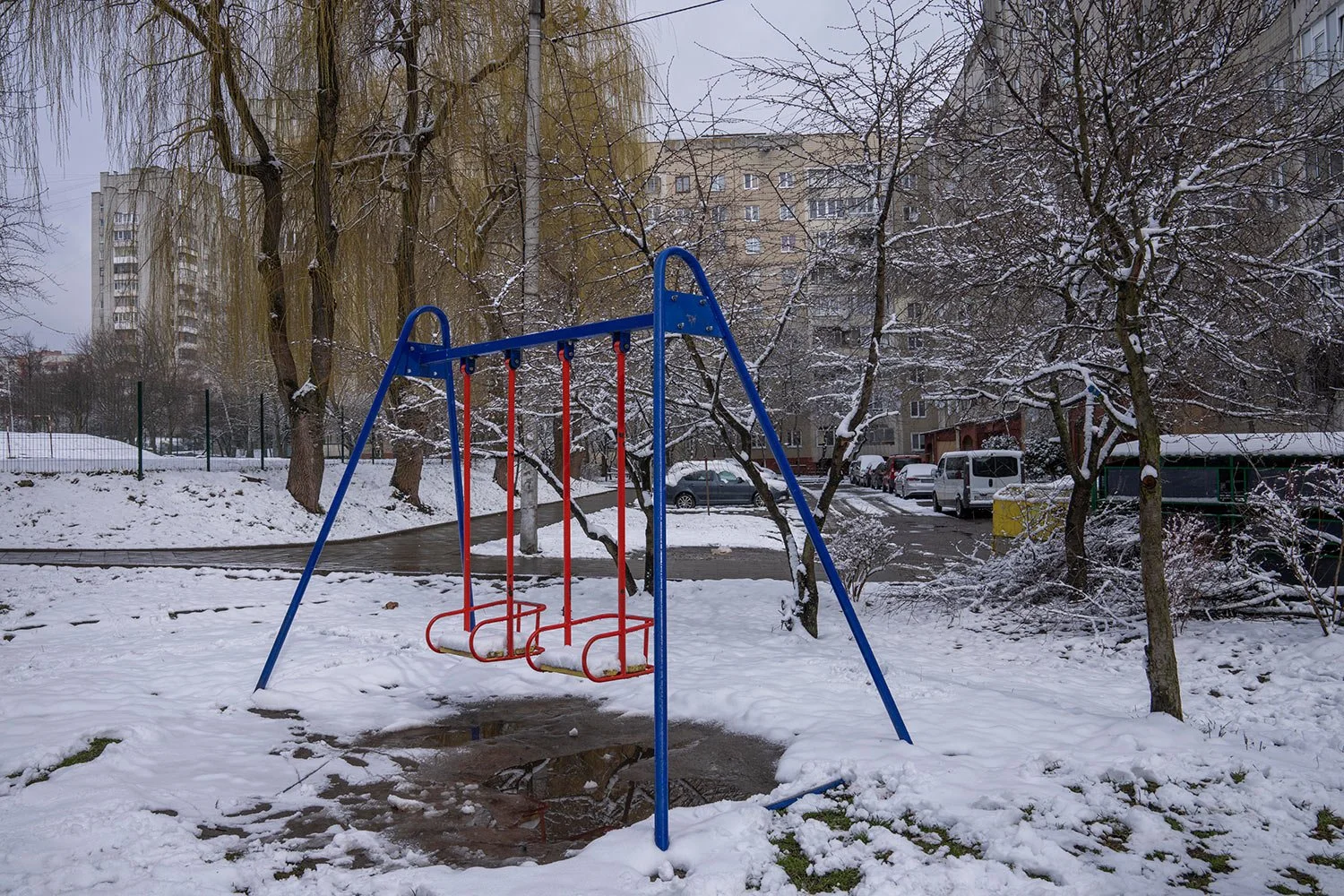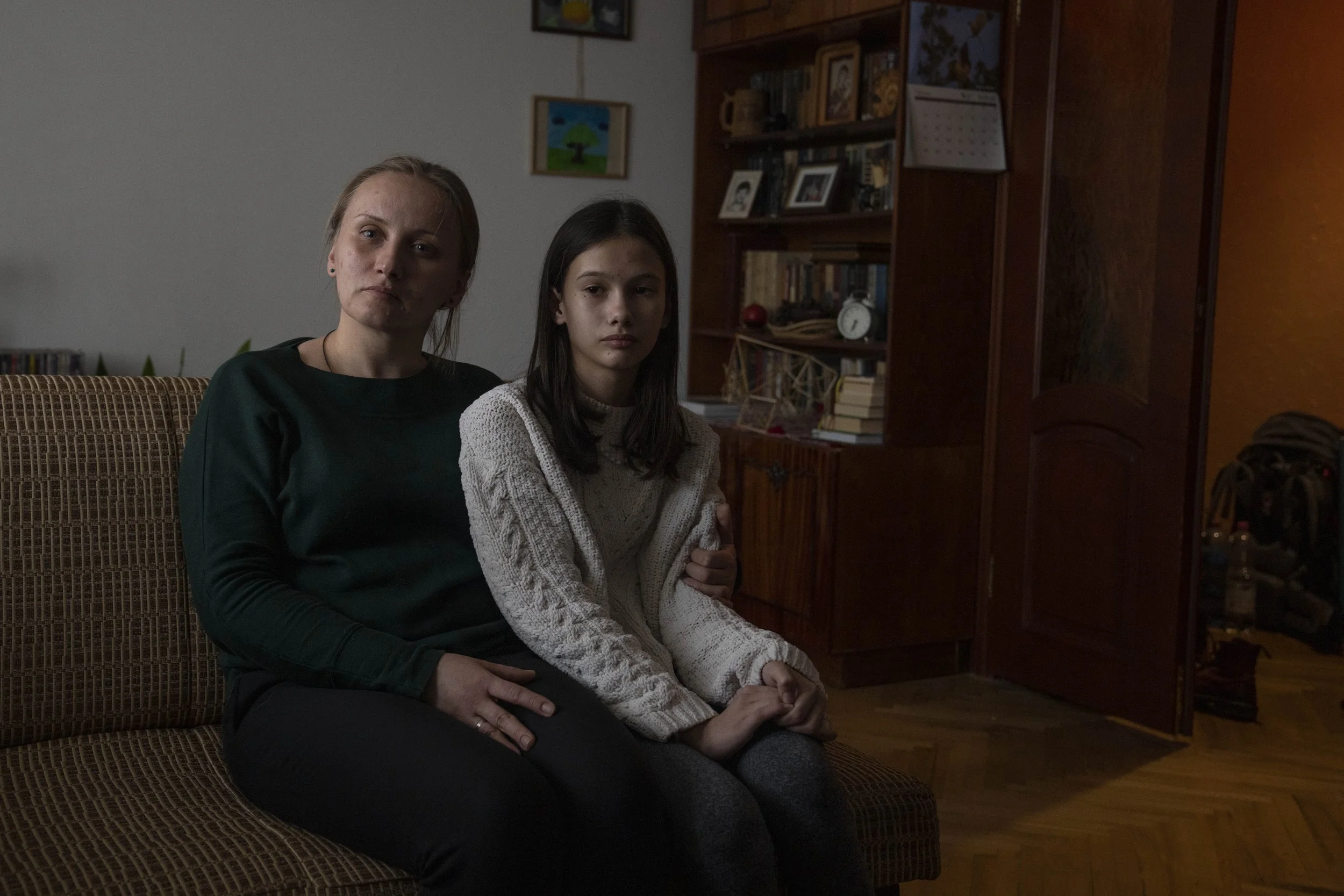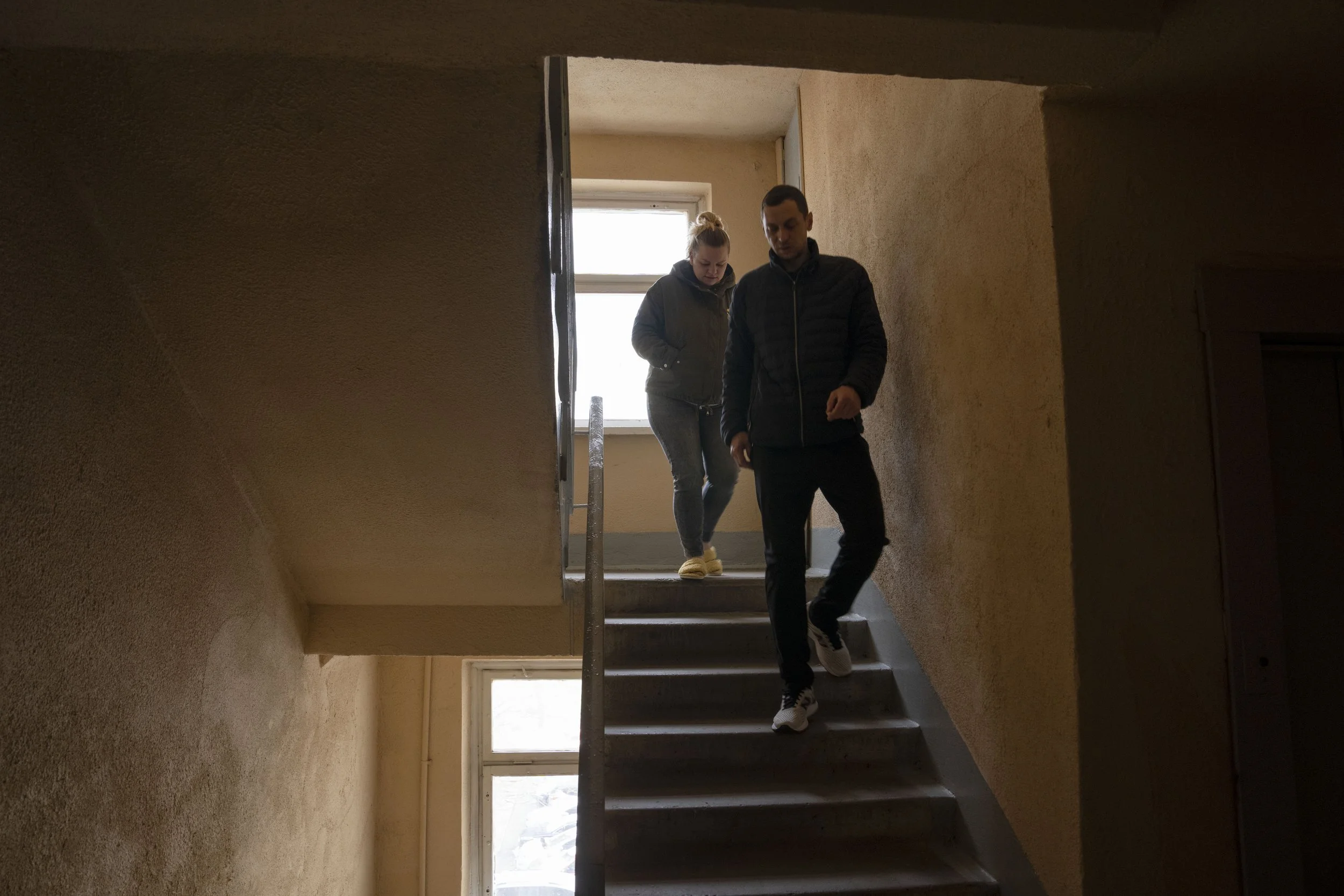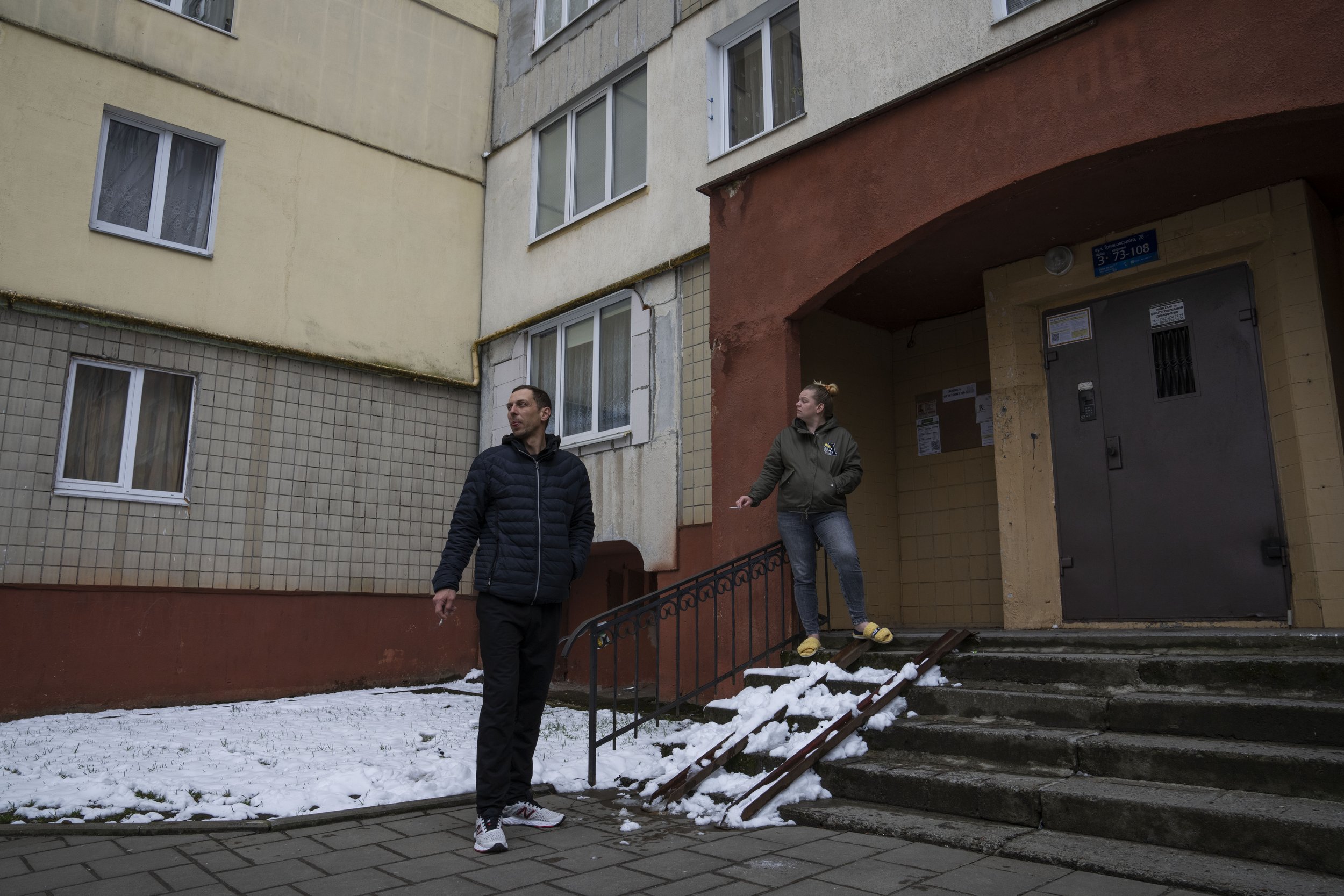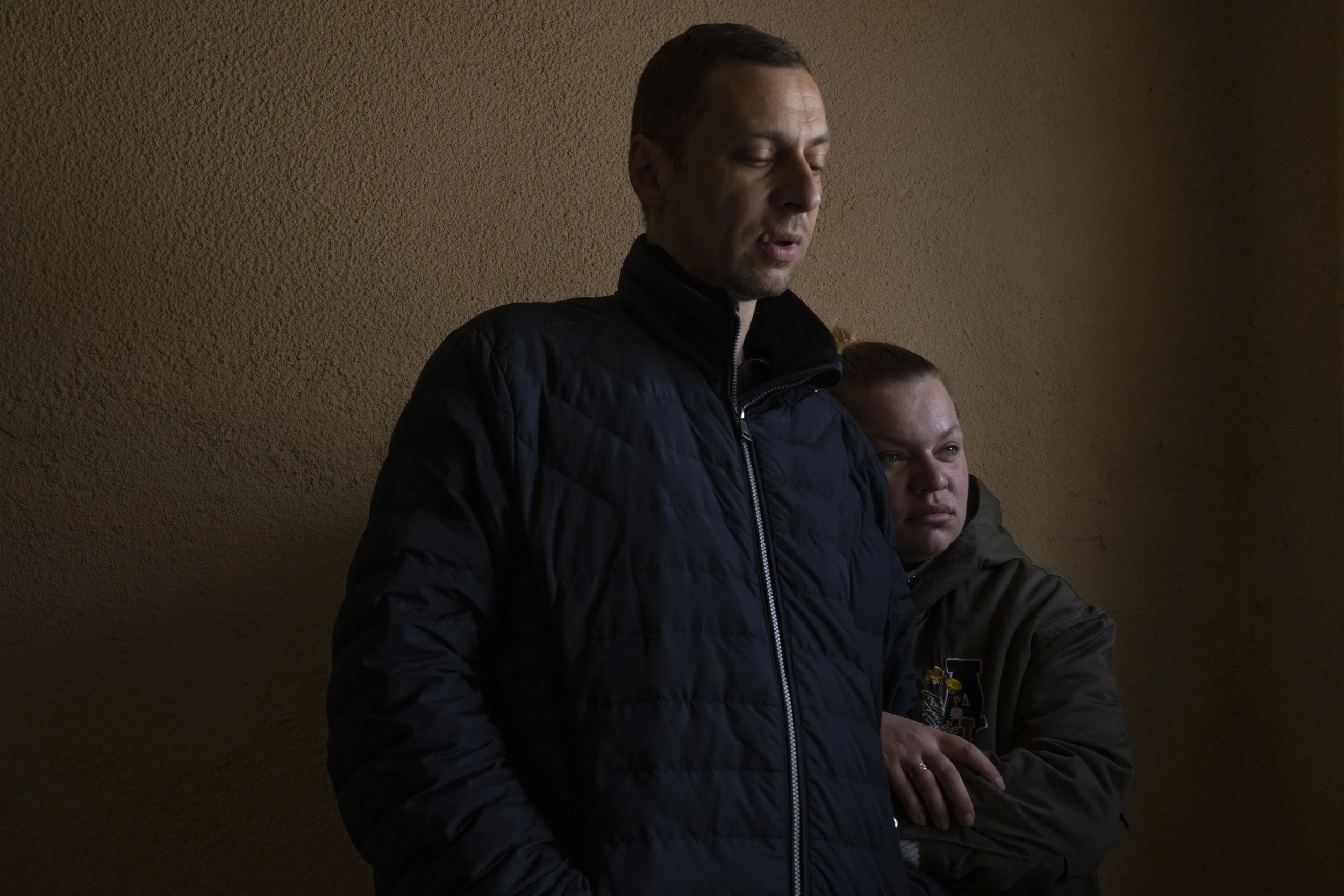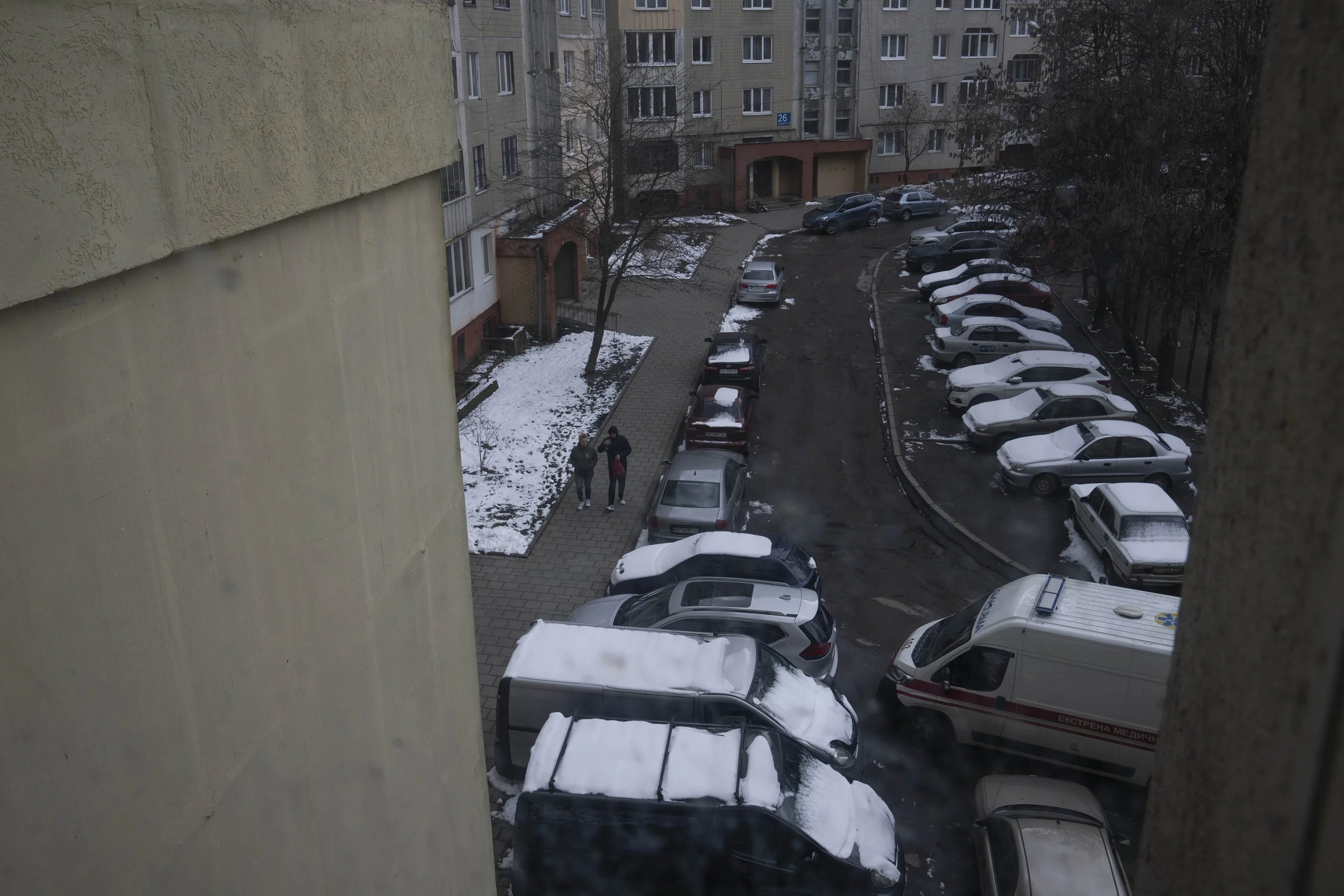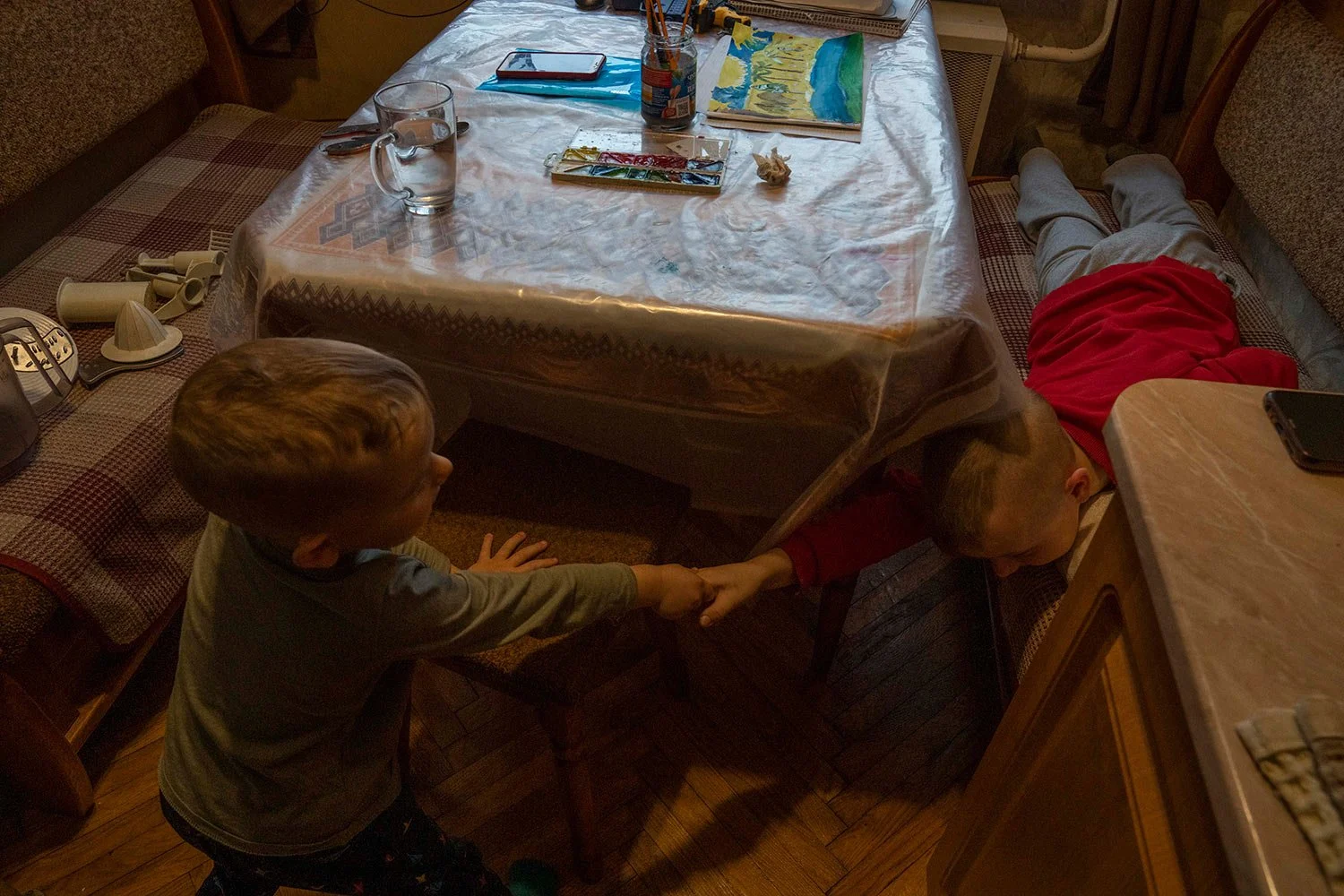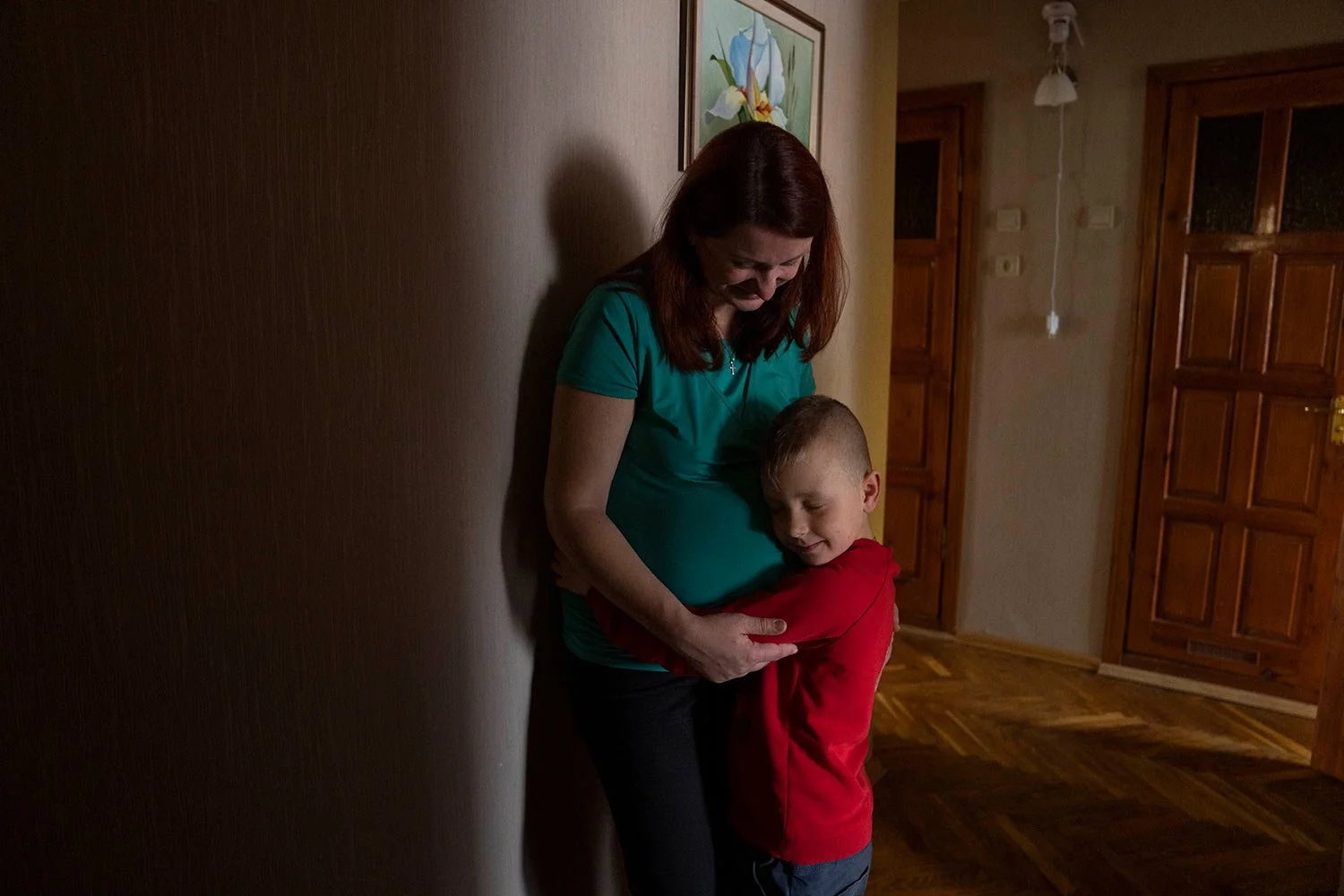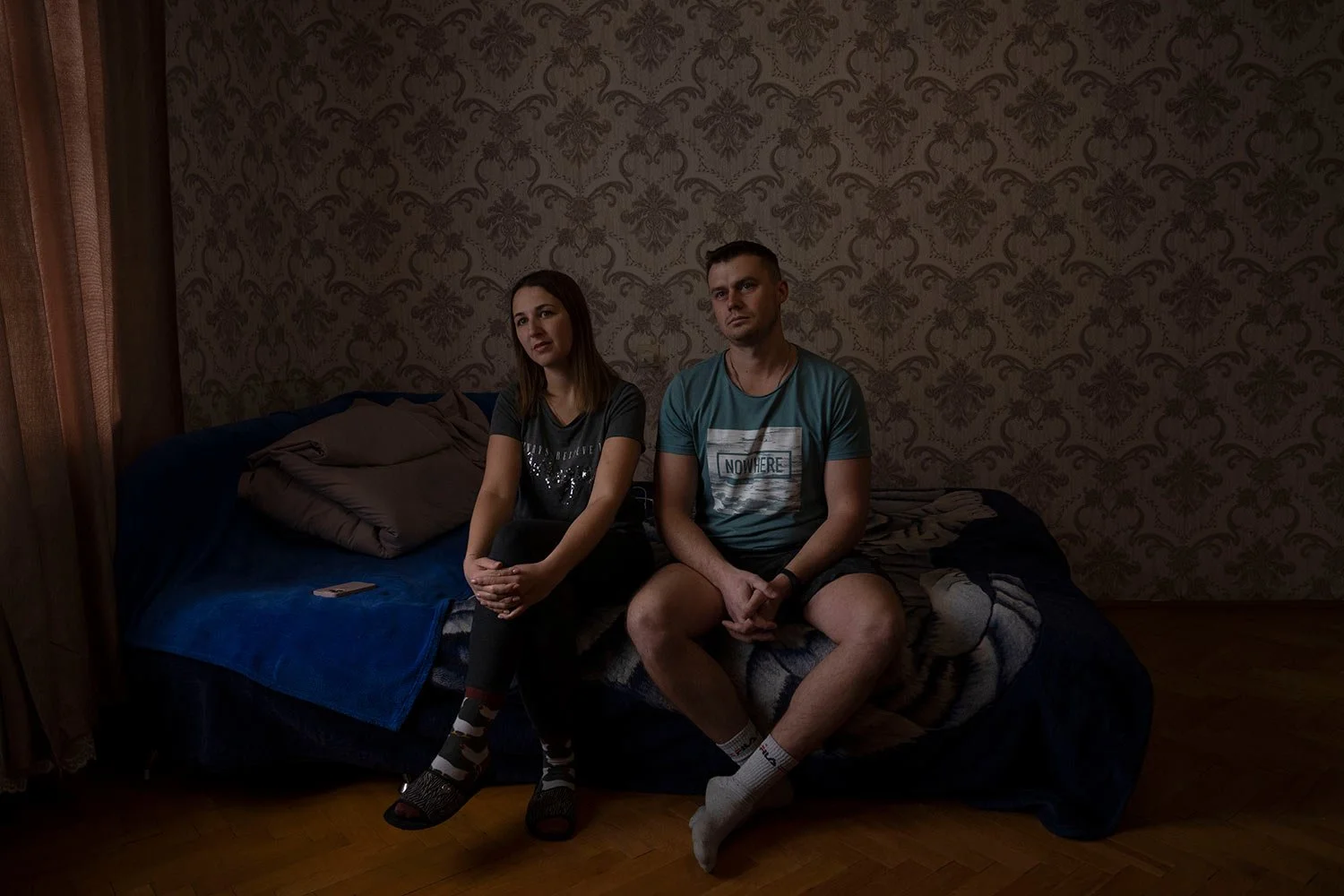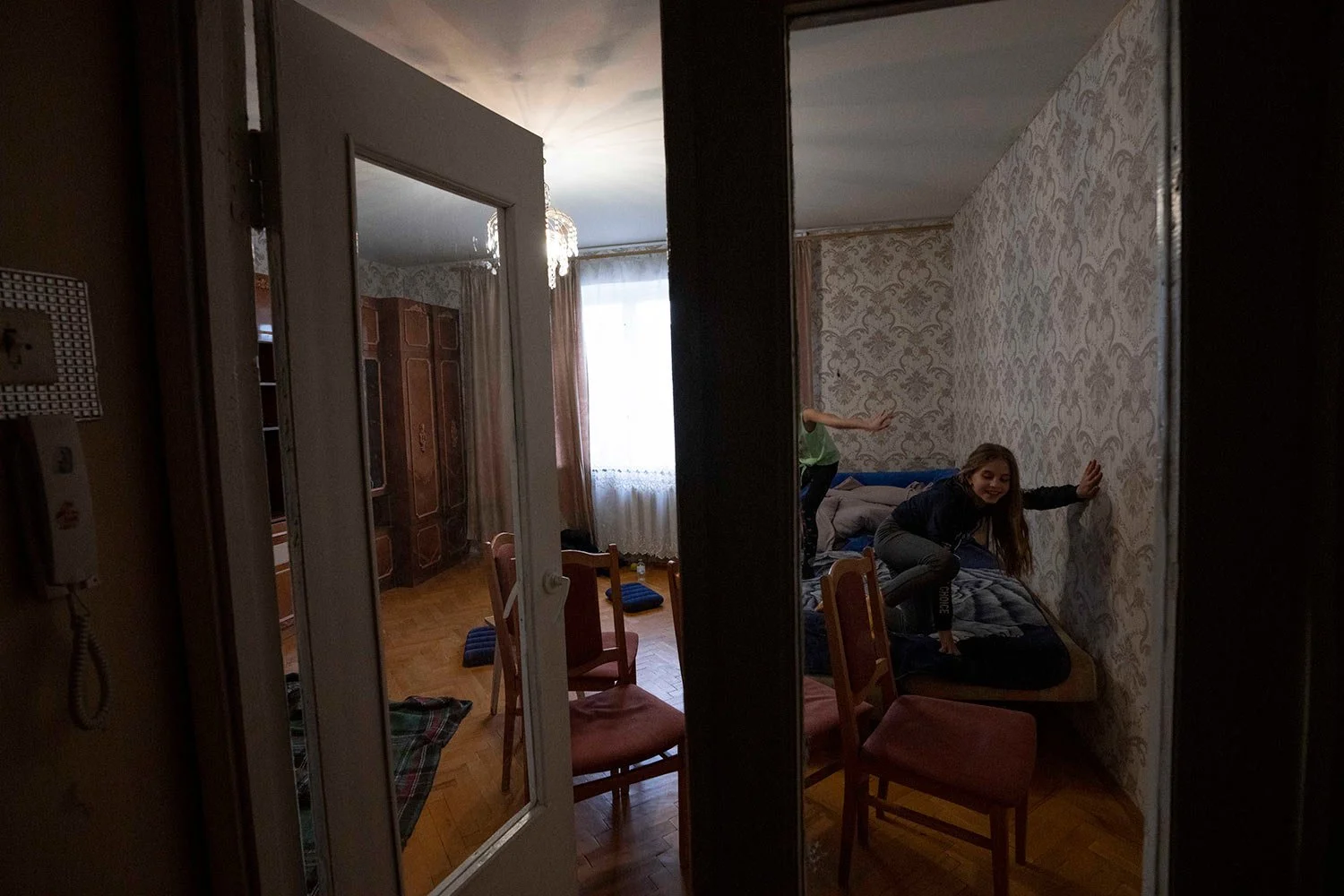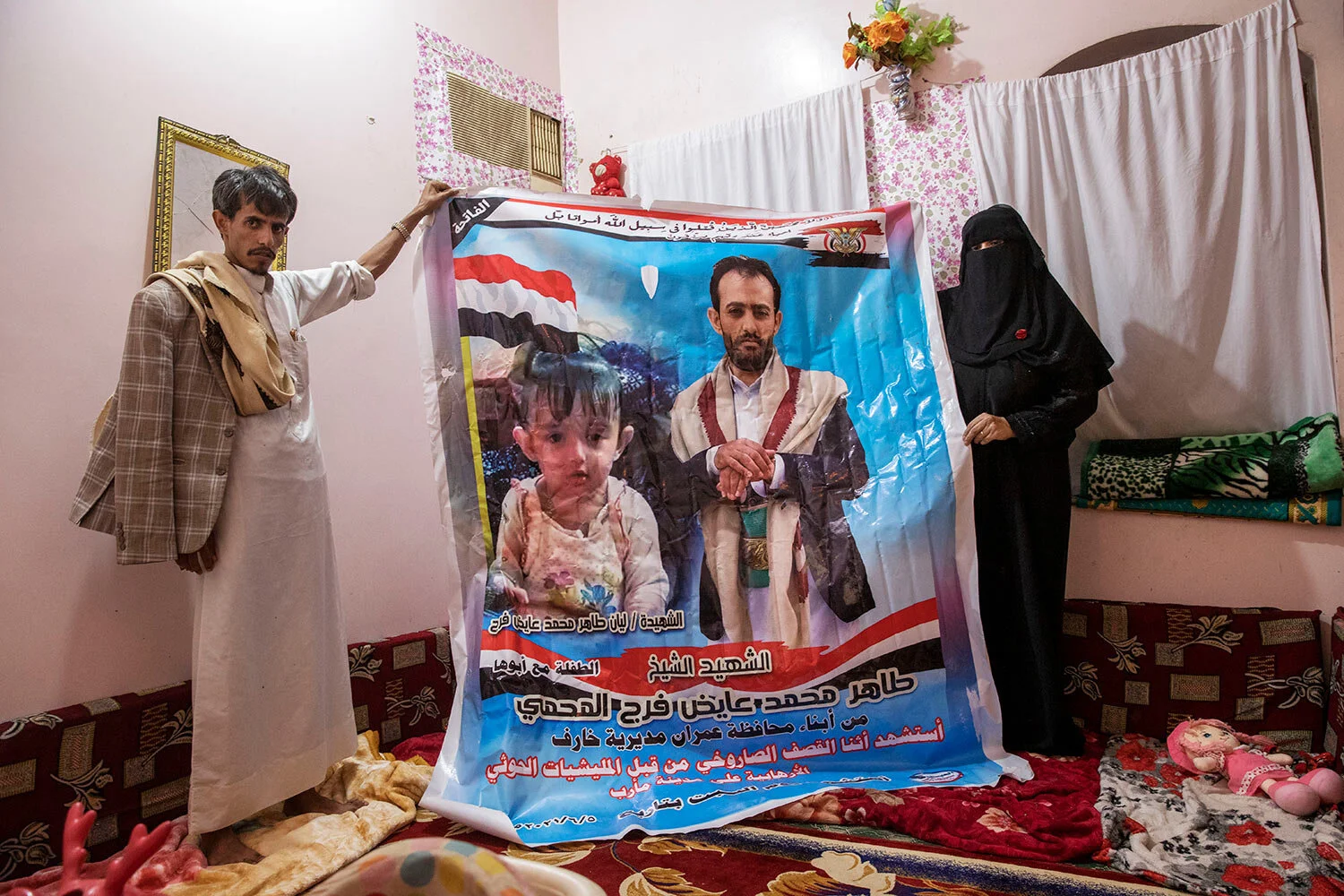Behind every window: Stories of Ukraine's families during war

By Cara Anna and Susie Blann
Photography Nariman El-Mofty
Videography Renata Brito
The Soviet-era apartment blocks at the end of a tram line in this western Ukrainian city show an indifferent face to the world, blank and gray.
Lviv on the surface looks calm, but the city is uniquely representative of the 6 million people displaced inside Ukraine since Russia's invasion.
This is one of the apartment buildings that now holds families from some of Ukraine’s most devastated communities.
People here live within footsteps of each other.
And they can recognise people like themselves without saying a word.
VIDEO: Olha speaks while sitting with her daughter, Solomiya, about when she learned the war began in Ukraine.
“It’s begun”
Olha has stayed in her Lviv apartment since the invasion began, and yet she’s been on the run for longer than anyone.
Every time the air raid siren sounds, she and her husband and 13-year-old daughter Solomiya take the bags to shelter in their hallway.
She took seriously the talk in the West about a Russian invasion and packed a “go bag” with clothes, medicine, food and documents in November.
On Feb. 24, her husband woke her with the words, “It’s begun.”
Olha.
Olha placed tape on her windows after seeing people who fled eastern Ukraine do it.
“Maybe they know something,” she says.
But despite her preparations, she still hadn’t been fully prepared for war.
“People who lived here, especially with children, they just like disappeared in a moment,” she says.
Olha’s family has lived in the apartment for a dozen years, so she feels safe for now.
She is head of the local association of apartment owners and her family has lived in the city for generations.
She has watched the building empty out during the war’s earliest days, only to fill again when people realised that Lviv isn’t on the front line.
Olha has never considered leaving, even when a Russian airstrike in Lviv made their building shake.
Olha and her daughter Solomiya.
She wanted to stay
Iryna speaks in a stairwell on a concrete landing between floors, still caught in transit.
Iryna and Volodymyr.
She leans on her husband, Volodymyr, and wears the one sweater she fled with when they left Irpin.
She has fuzzy slippers and her ankles are bare, even when she steps outside to smoke in the freezing weather.
Iryna and Volodymyr.
Iryna and Volodymyr were trapped for days between Ukrainian and Russian forces and quickly learned to distinguish between incoming and outgoing fire.
They took shelter in a basement and whenever the shelling eased, they climbed out to shout to their neighbors to see if they were still alive.
Even when her husband insisted that she leave, she wanted to stay.
Iryna and Volodymyr.
Volodymyr stayed in Irpin longer than she did, helping with evacuations.
With communications cut, Iryna could reach him only by text message.
“I could see he received the messages, but he couldn’t answer,” she says.
“I didn’t know for days about his fate, and it was terrifying.”
Iryna and Volodymyr share their apartment with four other adults, all of them colleagues with Volodymyr’s employer, a drug company.
“It’s very difficult to live with others,” Iryna says, but "we know a lot of people lost everything.”
A New Home
A new home had been waiting for Marta.
For years, her mother Iryna, an architect, has poured her money and talent into building it.
“The job of my life,” Iryna says.
Iryna and her grandson Nazar.
The family planned to move into their new house this summer.
Marta and her husband are doctors and want to stay and help.
She avoids the news from Bucha and tries to believe that their new home is untouched and waiting.
But hundreds of bodies are being found there, and the family doesn’t know what has been left intact.
Makar, left, and his brother Nazar.
Marta remembers looking out the window of their Kyiv apartment and watching fleeing cars.
Now, she sits on a bed in a borrowed home provided by a cousin.
Marta is also 38 weeks pregnant. The place in Kyiv where she meant to give birth was bombed.
Her birth plan, like almost everything else, was left behind.
Dr. Marta Kopan and her son Nazar.
One of Marta’s friends now works delivering babies in an underground shelter. He sent her photos of nearly 200 pregnant women waiting to give birth.
Marta knows that could have been her.
Her family wants to stay in Ukraine, but they have no long-term plan.
Marta with her husband Maxim and their son Makar.
Marta and her husband are doctors and want to stay and help.
“I want to have my children to have their own rooms with their Legos, with their different pencils,” she says, keeping her hopes alive.
The baby’s space was still unfurnished, except in the grandmother’s dreams.
VIDEO: Marta describes the artwork her son Nazar has made during war.
“Let’s stay in Lviv”
The kitchen ceiling is peeling. The bed is an air mattress. The rooms are mostly bare.
Olya Shlapak’s 8-year-old daughter Zlata is pirouetting in her bedroom with a new friend and telling her parents:
“Let’s stay in Lviv.”
Olya, 28, and her husband, Sasha, worry there’s little to return to in Kharkiv, and the home they bought just six months ago.
On the first day of Russia’s invasion, they left it to seek safety in the subway, along with hundreds of other residents.
Olya recalls the “biggest fear of my life,” awakening her daughter to tell her the war had started.
Luckily, she says, Zlata didn’t see much fighting, but “when she hears loud noises, she tries to hide.”
A week later, they drove to Lviv, thinking they would stay a day or two. They live with their cocker spaniel, Letti, in an eighth-floor apartment found by “a friend of a friend of a friend of a friend.”
Zlata and Letti.
Securing a place in crowded Lviv was hard; some landlords objected to the dog, or even to Sasha.
“Many people say the husband should be at the front,” fighting, Olya says.
Sasha continues to work in information technology. Olya can’t bring herself to look for a job. That would mean accepting they might be in Lviv forever.
“I’m waiting,” she says.
“This is not life for me now.”
Olya and Sasha.
Years ago, Olya fled the Donetsk region in eastern Ukraine amid the fighting there.
That experience taught her not to panic.
But she has been shaken by the effects of Russia’s war propaganda on the people she loves.
For years, she avoided watching the news. Now she watches it for hours on end.
She cooks.
She plays with her daughter.
She helps other displaced people.
To fill the time, the family is putting together a jigsaw puzzle on the floor.
But the dog has eaten a few of the pieces, and it might never be complete.
8-year-old Zlata-Maria, left, plays with her new friend she made from Lviv 9-year-old Sophia.
Video Renata Brito
Photography Nariman El-Mofty
Text Cara Anna
Text Reporting Cara Anna and Susie Blann
Production, Video and Photo Editing Nat Castañeda
Text Editing Jerry Schwartz
Visual artist and Digital Storyteller at The Associated Press

